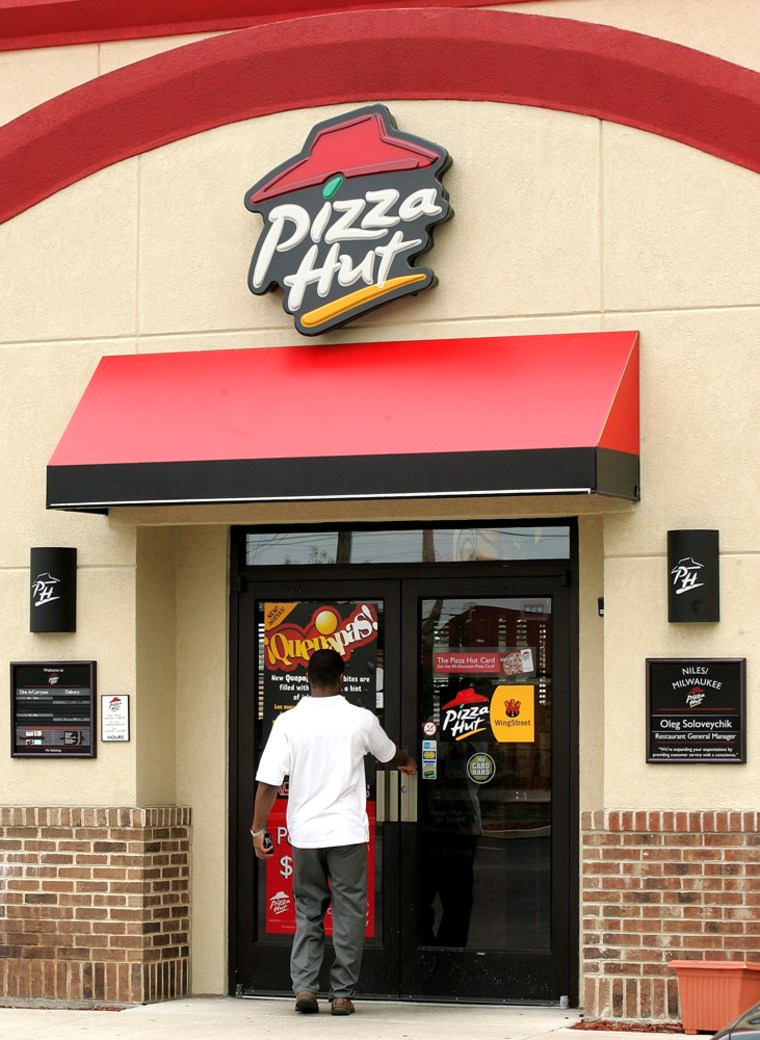Pizza Hut's recent branding debacle highlights exactly what can go wrong when a company spews too much marketing corporatese. Most humans don't speak that language and are easily confused by it. This time, many of them came away believing that Pizza Hut was changing its name. Apparently, it's not. I think.
In March, Brandweek published an interview with Brian Niccol, the chain's chief marketing officer. It was almost as if the magazine were talking to a bot that had been programmed to answer only in boilerplate marketing phrases.
Where will growth come from? Brandweek asked. "The big solution is for us to come up with home meal-replacement solutions, whether it's pasta, pizza or wings," Niccol responded. (Mmmmm, meal-replacement solutions.) In a moment of unintended candor, he said Pizza Hut is helping recession-strapped diners by offering "what's perceived as restaurant-quality meals" for a reasonable price.
In response to a question about Pizza Hut's move to "all natural" pizza, he mentioned the tomato sauce, the pepperoni, and the crust as falling into that category (whereas, we presume, they hadn't before). Then he said: "All of our vegetables are already natural." That's a relief.
The trouble started when the interview moved on to chainwide branding. Brandweek wanted to know why Pizza Hut was test-marketing a new logo that refers to the chain simply as "The Hut."
Pizza Hut was "introducing another vocabulary word," Niccol said. "That ties in with [today's] texting generation. ... As we expand our online and mobile businesses, 'The Hut' is the perfect icon for our mobile generation."
Which I guess means that The Hut is trying to help people, for example, stay within Twitter's 140-character limit when they talk about the chain. (How about saving still one more character by going with "Za Hut"? Too German?)
In fairness, Niccol did mention "Pizza Hut" along with "The Hut," but the resulting confusion was understandable. It took months for the interview to make it to the blogosphere, but once it was picked up, last week, most bloggers worked from the assumption that the chain was changing its name, perhaps "slowly."
The company quickly moved to clear things up, and most bloggers updated their posts. Pizza Hut issued a statement quoting Niccol: "We are proud of our name and heritage and will continue to be Pizza Hut. We do use 'The Hut' in some of our marketing efforts."
The obvious problem is that when you test-market a new logo with a new name that uses part of your existing name, people are naturally going to think a name change is coming.
I have to assume that the company was at least toying with that very idea. (Just as it has toyed with "Pasta Hut.")
Pizza Hut is (laughably) trying to make its food appear healthier with the "all natural" business and the mentions of its nonsynthetic vegetables. The Hut's owner, Yum Brands, in another rebranding in the '90s, changed the name of its Kentucky Fried Chicken chain to KFC. The circumstances were similar. Just as Pizza Hut is (laughably) trying to make its food appear healthier with the "all natural" business and the mentions of its nonsynthetic vegetables, Kentucky Fried Chicken was (even more laughably) trying to make its "chicken-flavored doughnuts" appear healthier by taking "fried" out of the name.
Still, KFC never pretended it wasn't selling chicken. Pizza Hut can't pretend it's not selling pizza.
The chain is dealing with a bad situation: Older diners are turning away from pizza because of health concerns. But dropping pizza would run the risk of "turning the rest of its brand into a question mark," writes Jim Edwards at Bnet.com "What, exactly, should we expect from 'The Hut?'"
More confusion, probably. As Bnet's Katherine Glover notes: "No one knows what’s going on anymore. That’s not exactly a good thing for a brand."
